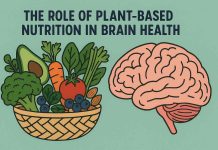Pregnancy vomiting, also known as “morning sickness”, is characterized by repeated nausea, vomiting, anorexia, and even vomiting upon smelling, vomiting upon eating, and inability to eat and drink. It refers to the frequent occurrence of food choices, loss of appetite, mild nausea and vomiting, dizziness, and lethargy during early pregnancy. It is called early pregnancy reaction. It usually starts about 40 days after menopause, and the reaction subsides within 12 weeks of pregnancy, which has little impact on life and work, no special treatment is required. A small number of pregnant women experience frequent vomiting and inability to eat, resulting in weight loss, dehydration, acid, and alkali balance disorders, and water and electrolyte metabolism disorders, which are life-threatening in severe cases. Let’s talk about the five troubles of pre-pregnancy.
Going to the Toilet More Often
Many pregnant mothers will experience frequent urination at the beginning of pregnancy, and even many pregnant mothers only find out that they are pregnant when they discover frequent urination and go to the hospital for examination. In fact, frequent urination is a must for most pregnant mothers during pregnancy. Frequent urination in early pregnancy, especially around 8 weeks of pregnancy, is mainly caused by changes in body hormone secretion.
Until now, there is no particularly good way to control the occurrence of frequent urination. The only feasible way is for pregnant mothers to control the amount of water they drink. Pregnant mothers do not want to go to the toilet frequently at night, and it is best not to drink water within 1-2 hours before going to bed.
In fact, only the first and third trimesters of pregnancy are troubled by frequent urination for pregnant mothers. During most of the pregnancy, the pregnant mother will be relatively better. Therefore, the pregnant mother will not be troubled by this little thing every day. Moreover, many mothers often say that prenatal frequent urination is a good thing because it can exercise you to get up at night in advance, you must know that this is a process you must go through after the baby is born.
However, pregnant mothers should pay attention that usually frequent urination is just frequent urination, and there will be no other symptoms and discomfort in the body. However, if you experience unusual symptoms such as pain or burning when urinating, seek medical help immediately. Abnormal urination should go to the hospital for examination in time, otherwise delaying the condition may involve other organs such as the kidneys.
Tired Easily
In the early stages of pregnancy, pregnant mothers will feel weak and always want to sleep. Especially in the first month of pregnancy, pregnant mothers are very easy to feel tired, and even many pregnant mothers will feel tired all day long and doubt whether they can continue to work. If the body lacks iron, protein, and enough calories, this feeling of tiredness will be more intense.
In fact, this is a normal reaction, because the baby will be implanted in the pregnant mother’s uterus, and the pregnant mother will feel uncomfortable and tired. After 3 months of pregnancy, the mother’s condition will improve. In fact, pregnant mothers have countermeasures for fatigue in the early stages of pregnancy.
- No matter how tired you are, don’t think of using coffee, strong tea, cola, candy, and sweet cakes to lift your spirits. Once the short-lived excitement they bring to the pregnant mother is over, the blood sugar will plummet, and she will be more tired than before. Moreover, their harm to the unborn baby is unpredictable.
- At this time, expectant fathers should especially understand and take care of pregnant mothers, both physically and mentally. Now pregnant mothers are experiencing uncontrollable fatigue that they have never felt before.
- When the pregnant mother sits, pay attention to the position of raising the feet. Go to bed early in the evening and pay attention to proper exercise such as walking every day.
- Dietary conditioning can relieve fatigue in a targeted manner. For example, you can eat more malt products, because malt is rich in vitamin B6, folic acid, and phospholipids, which can help expectant mothers to relieve fatigue to a certain extent.
Often Feel Dizzy and Sleepy
After pregnancy, due to endocrine changes, the growth and development of the fetus, and other factors, the functions of various organs of the pregnant mother undergo adaptive changes. In particular, the circulatory system is the most sensitive. Due to insufficient blood supply to the brain and low blood pressure, it often causes dizziness, headache, drowsiness, and other symptoms.
This temporary insufficiency of blood supply to the brain will gradually improve as the heart rate increases and the cardiac output increases, and the dizziness will gradually disappear. Once the dizziness occurs, you should sit down or lie down immediately to prevent the dizziness from getting worse. Avoid prolonged standing to prevent seizures.
In addition, in the early stage of pregnancy, pregnant mothers eat too little, resulting in low blood sugar, coupled with early pregnancy reactions, there will be symptoms of fainting. The editor suggests that pregnant mothers should ensure adequate intake of fluids and eat more for breakfast, such as milk and eggs. Simultaneously. It is best for pregnant mothers to bring some milk candy with them. Once dizziness occurs, eating candy immediately can relieve the dizziness and also play a therapeutic role.
Anemia in pregnant mothers is also one of the causes of dizziness. Usually, pregnant mothers should consume iron-rich foods, such as animal blood, liver, lean meat, and so on. If a pregnant mother develops anemia, iron supplementation should be urgently needed.]
Constipation troubles follow you
During pregnancy, pregnant women are also prone to constipation due to less physical activity and dietary changes. Moreover, because the enlarged uterus compresses the colon and rectum and affects the peristalsis and tension of the bowel, it is also easy to cause constipation.
Constipation can cause many diseases, and the treatment is not very good, so prevention has become the most important part.
- The first choice for the treatment of constipation is diet therapy, which is to eat more vegetables and fruits. Eating more vegetables and fruits is to supplement dietary fiber, and foods rich in dietary fiber, such as fungi: mushrooms, fungus, white fungus, etc.
- Pregnant mothers should drink more water, and it is best to keep drinking more than 2500ml of water every day.
- Develop a good defecation habit. Every day, regardless of whether there is a desire to defecate, choose a fixed time and go to the toilet to squat for 3 to 5 minutes. The purpose is to cultivate the defecation reflex.
- When you are free, pregnant mothers can let their expectant fathers accompany them to do pregnancy exercises together.
Nausea and Vomiting in the Morning
During the first 3 months of pregnancy, pregnant mothers almost always experience nausea and vomiting. In the first stages of pregnancy, 60% to 80% of pregnant women experience morning nausea and vomiting, and around 4 weeks of pregnancy, morning nausea and vomiting often lasts 24 hours a day.
Morning nausea is accompanied by many other symptoms, including disgust with a certain taste or smell that has never bothered you before, like coffee, cigarette smoke, meat, and your favorite long-term salad! Just seeing these foods can give you morning sickness.
Faced with nausea and vomiting in the morning, the editor recommends that pregnant mothers have better eat less and more meals. Nibbling on dry biscuits throughout the day, at the office, by your side, in the car, or anywhere else, really helps.
Constant nausea and vomiting may make you malnourished or dehydrated. At this time, pregnant mothers can try to drink some liquid fluids, such as juice, and keep drinking water. Pregnant mothers can also drink some cheese and yogurt because it is very good for pregnant mothers to supplement calcium. If you vomit three times a day, I recommend seeing your doctor to find out if you are dehydrated.
Read Also:













